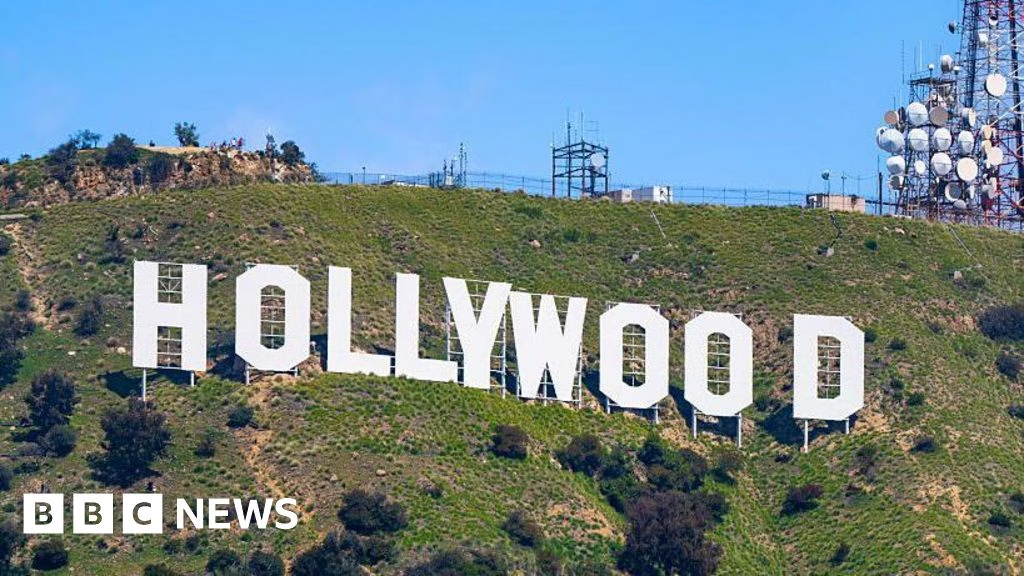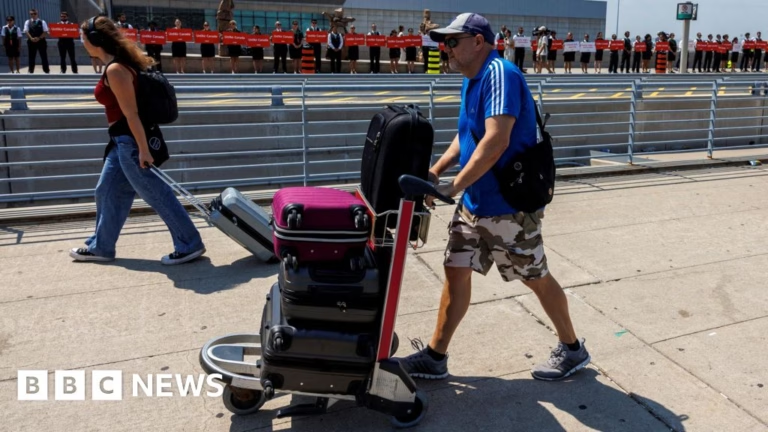US President Donald Trump plans to impose 100% tariffs on movies produced in foreign countries as part of his escalating trade disputes worldwide. He attributes this decision to the rapid decline of the US movie industry, blaming countries that offer incentives to attract filmmakers and studios, describing it as a National Security threat. Trump believes that these tariffs will promote American movies and ensure the industry’s revitalization.
Since his return to the White House in January, Trump has imposed tariffs on various countries, claiming that it will boost US manufacturers and protect jobs. However, the global economy has been negatively impacted, with rising prices on goods worldwide.
Trump appointed three film stars—Jon Voight, Mel Gibson, and Sylvester Stallone—to serve as special ambassadors for promoting business opportunities in Hollywood, highlighting its decline over the past four years.
Despite challenges, the US remains a significant film production hub. Movie industry research firm ProdPro’s latest annual report shows that the US had $14.54 billion of production spending last year, down 26% from 2022. Countries such as Australia, New Zealand, Canada, and the UK have seen increased spending during this period.
Trump’s trade policies have already affected the US movie industry. In April, China announced a reduction in the quota of American films allowed into the country due to US tariffs. The China Film Administration stated that the abuse of tariffs could further reduce the audience’s favorability towards American films.
Trump launched the most aggressive tariffs against China, imposing import taxes of up to 145% on goods from the country. Chinese authorities have retaliated with a 125% import duty on US goods. Other countries currently face a blanket US tariff of 10% until a pause on higher levies expires in July.
Trump recently stated that he is meeting with various countries, including China, regarding trade deals. However, he has no plans to speak with his Chinese counterpart, Xi Jinping, this week despite previous reports suggesting trade talks.
Source: https://www.bbc.com/news/articles/cjr7e2z1rxyo








